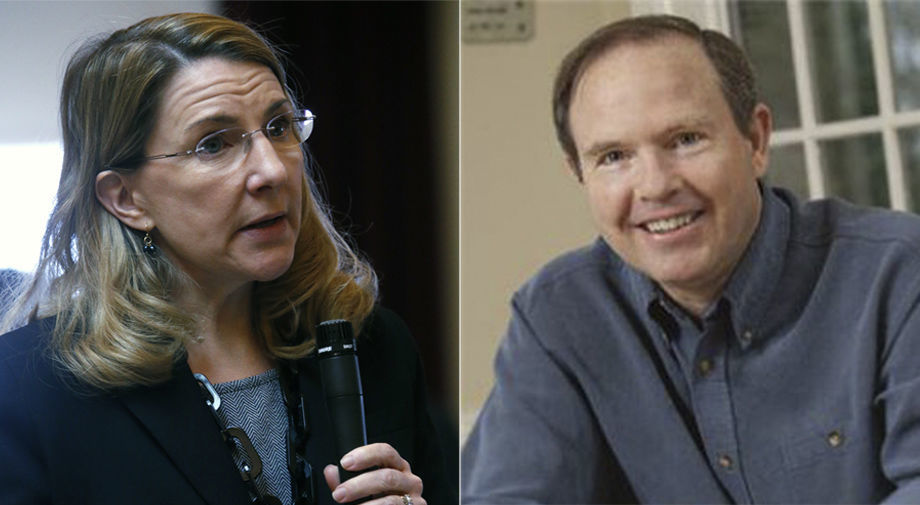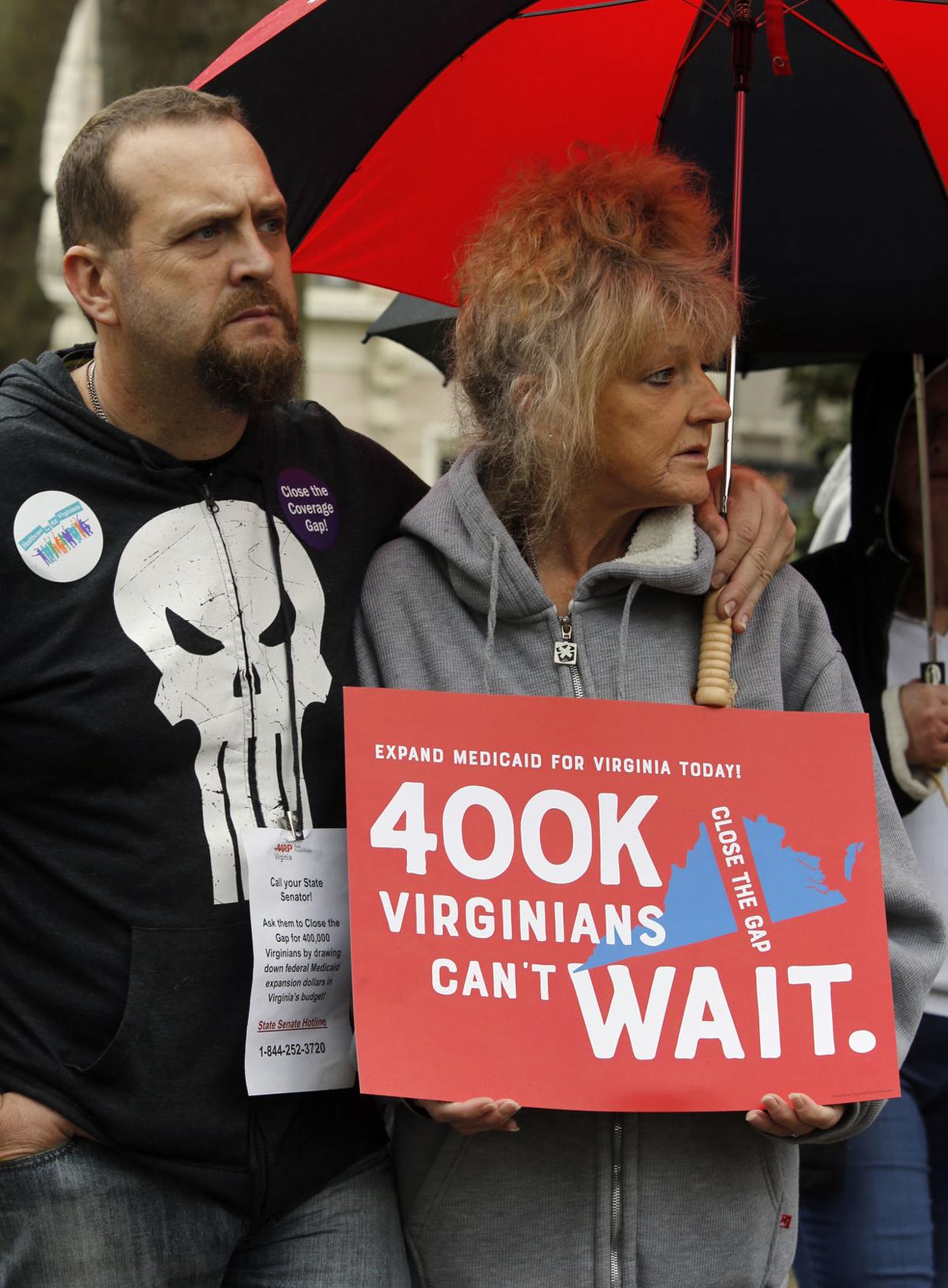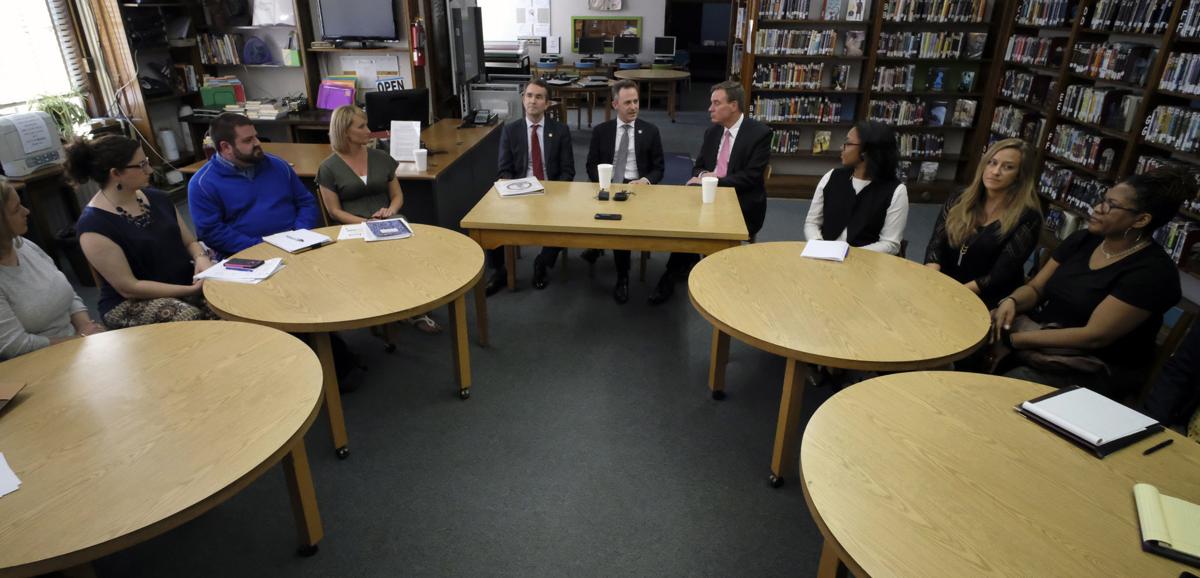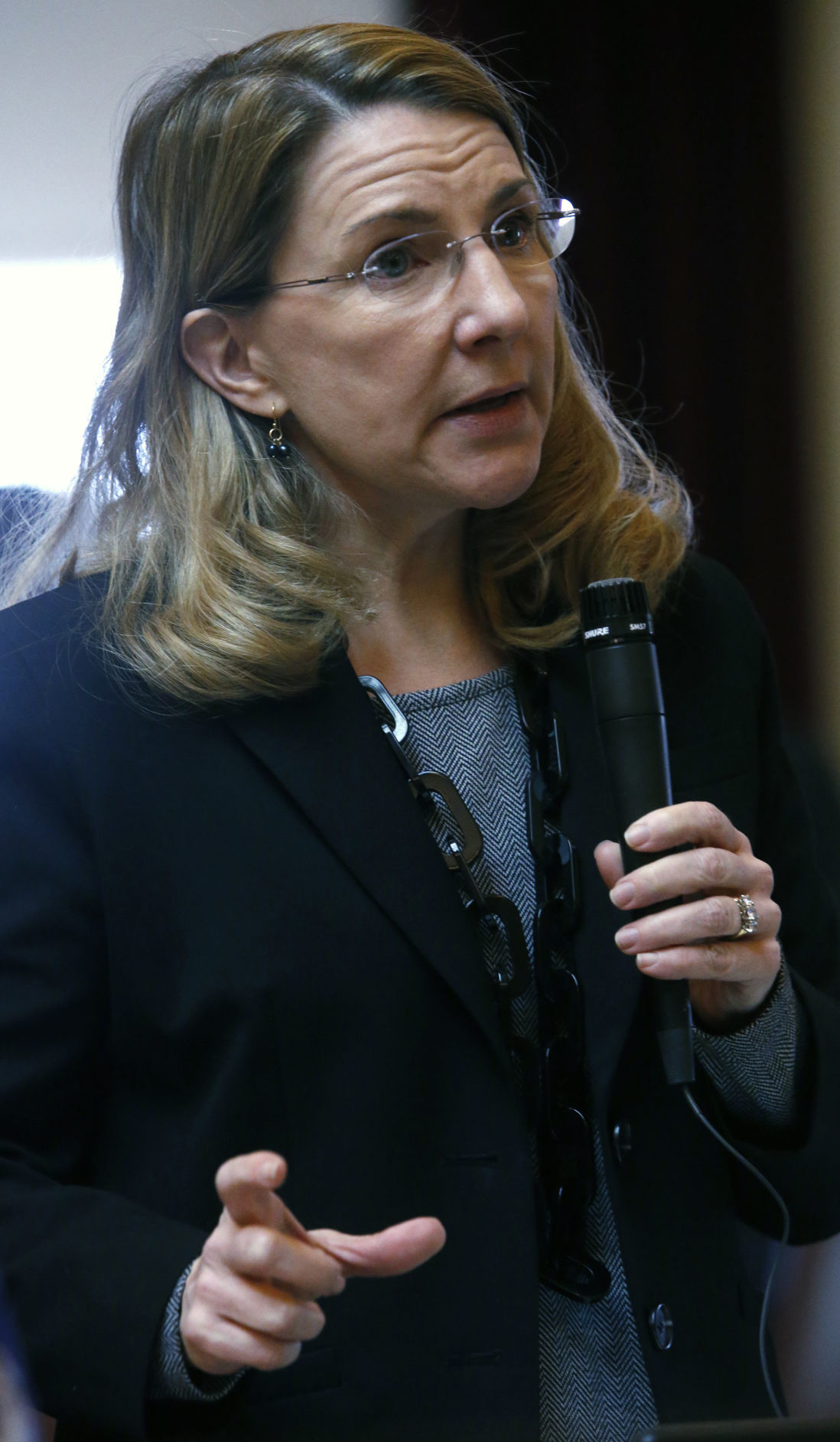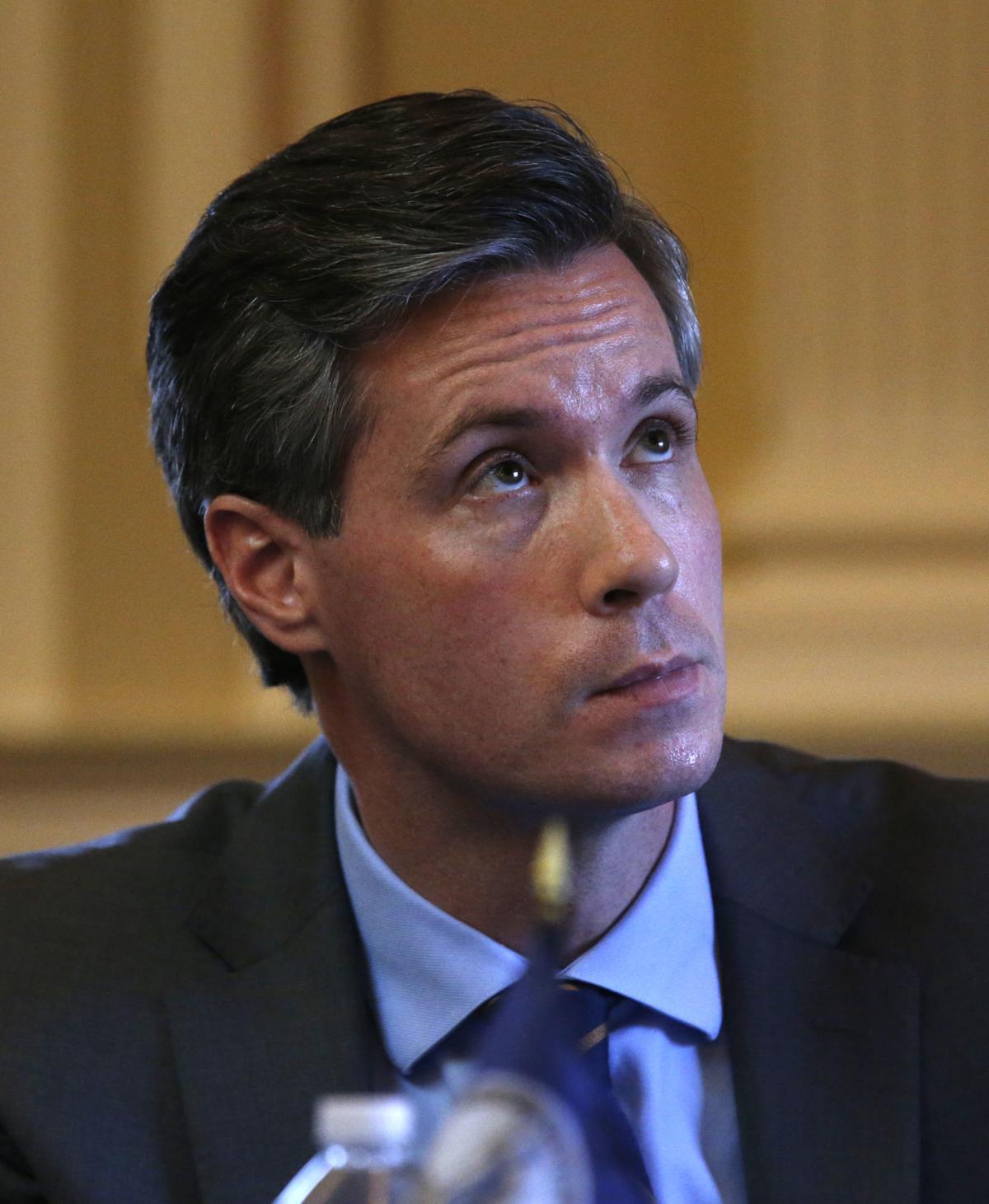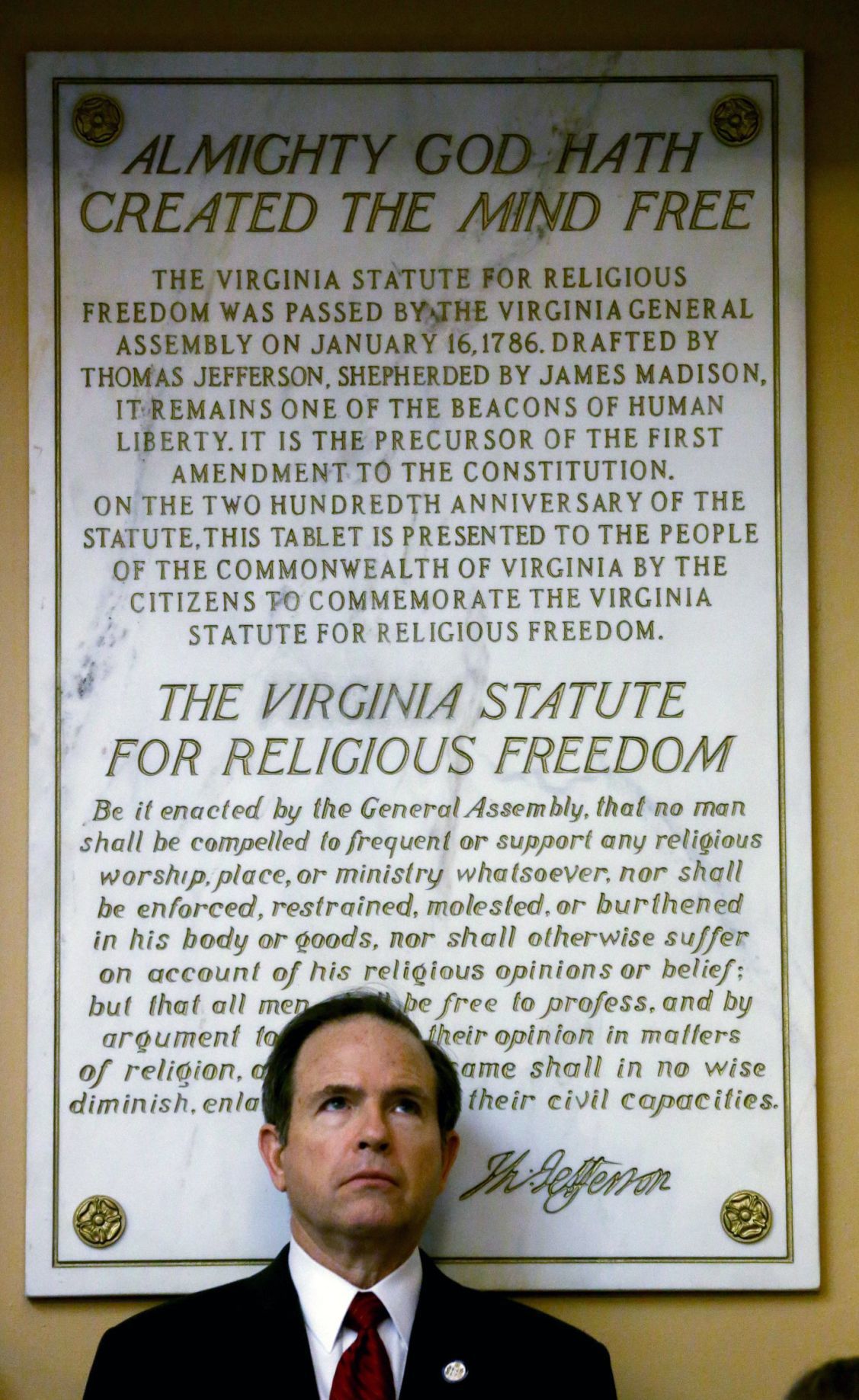Del. Chris Stolle of Virginia Beach is among House Republicans who back expansion of Medicaid under the Affordable Care Act. And those Republicans are being pressured by conservatives to change their position.
In the Richmond area, Stolle’s sister, state Sen. Siobhan Dunnavant, R-Henrico, is also facing pressure. But it’s a different kind.
Dunnavant is among the 21-member Senate Republican Caucus holding firm against Medicaid expansion. And that’s leading to pressure from Democrats on her and other Republican senators to change their positions.
The distinct pressures on the Republican legislative siblings illustrate the division within the state GOP over the issue. While a significant number of Republicans in the House agreed — after their caucus nearly lost its majority in the November election — to support Democratic Gov. Ralph Northam’s call for expansion, the Senate has refused.
And now, political pressure is being exerted from all sides ahead of the legislature’s return to session on April 11 to finish work on the budget.
Anna Scholl, executive director of liberal group ProgressVA, said Republicans are becoming increasingly conscious that the November wave election that flipped 15 GOP-held seats in the House came at the hands of voters who said health care was their top issue.
“I don’t think that the pressure on the right and the left here is equivalent. There is a small minority of vocal Donald Trump supporters who will oppose providing affordable health care for Virginians no matter what. But [you can’t] equate that small angry minority and some money from the Koch brothers on the national level with the vast majority of Virginians who support expanding Medicaid.”
One pro-expansion Republican delegate, Chris Peace of Hanover County, posted on Facebook on Thursday that he was undeterred by a phone call campaign initiated by the conservative group Americans for Prosperity trying to get him to change his mind.
“To my surprise, the handful of pass-through calls allege that Virginia is on the verge of a government shut-down (“fake news”), and that as a Delegate, I should vote to get rid of Obamacare. While I wish I could have such a vote, only the United States Congress can repeal the Affordable Care Act and they have failed to do so,” Peace wrote.
Since the session, Americans for Prosperity has coordinated phone calls to legislators and radio ads opposing expansion.
“We hope that the legislature passes a clean budget,” said AFP spokesman Lorenz Isidro.
As far as Peace’s Facebook post, he said: “This is proof that constituents are calling him. … Energy is still high.”
***
The Republican Party of Virginia’s State Central Committee was divided on the issue of Medicaid expansion when the committee met March 24 in Richmond.
Committee member Eve Marie Barner Gleason of the 10th Congressional District in Northern Virginia introduced a resolution commending state lawmakers who opposed Medicaid expansion.
The resolution said, in part, that “Virginia’s liberal Democratic Governor Ralph Northam made Medicaid expansion a cornerstone of his campaign, without regard to the long-term fiscal soundness of this program or its budgetary impact” and “the State Central Committee of the Republican Party of Virginia calls on all elected Republicans in the General Assembly to send the governor a budget that does not include funding for Medicaid expansion.”
Stolle, a member of the party’s executive committee, and freshman Del. Bob Thomas, R-Stafford, a member of the State Central Committee, spoke in favor of Medicaid expansion. But they were alone.
The resolution failed by one vote.
Jeff Ryer, who is a member of the State Central Committee from the 2nd Congressional District, a political aide to state Senate Republicans and an opponent of Medicaid expansion, said the vote was not on the merits of expansion.
“We did not believe that in the current circumstance it would be a good idea for the party to weigh in on what is ostensibly a dispute between Republicans,” Ryer said. “The vote was not decided on the merits of the issue. The vote was decided on the wisdom of weighing in.”
***
Republican delegates supporting expansion could run the risk of a primary challenge in 2019, when all 100 House seats and all 40 Senate seats are up for election. That risk became real this week for Thomas, who squeaked by Democrat Josh Cole in November in the district previously held by former Speaker William J. Howell, R-Stafford.
On Thursday, Paul Milde, former chairman of the Stafford Board of Supervisors, announced he’d run against Thomas in the 2019 primary because Thomas voted for Medicaid expansion. Milde was one of two opponents Thomas beat in the GOP primary last year.
“By joining 49 liberal Democrat delegates to support Obamacare and Medicaid expansion during this year’s session, Bob Thomas has failed to keep faith with the voters who nominated him last June,” Milde said in a news release.
“Worse, he has effectively aligned with Governor Northam and the Democrats to oppose Republican senators like Richard Stuart, who are standing up for conservatives and for fiscally responsible budgeting.”
Thomas was one of 20 House Republicans who voted for the budget, even though he represents the same 28th House District held for 30 years by Howell, who as speaker repeatedly blocked expansion of Virginia’s Medicaid program under the Affordable Care Act.
The November turnaround, coupled with the landslide victory of Northam in the governor’s race, changed the political dynamic in the General Assembly over Medicaid expansion.
“From the very first days of the session, it became clear the votes to block all forms of expansion were just not there,” Thomas told constituents in a newsletter the day after the budget vote on Feb. 22. “Recognizing some form of expansion was inevitable, I put my support behind negotiating for the strong conservative reforms I campaigned on.”
Buoyed by what he described as “positive reaction,” he subsequently held a district telephone town hall poll that showed 61 percent of constituents in favor of expanding Medicaid with reforms, while just 17 percent said the state should oppose expansion “under any circumstance.”
“It’s a changing landscape and there’s an opportunity to fix the existing program that we haven’t had for a long time,” Thomas said in the interview.
The reforms include a work-for-benefits requirement that House Republicans adopted — and Senate Republicans rejected as too weak — as part of a proposed Medicaid waiver that supporters said the administration of President Donald Trump has supported in other Republican-led states, including Kentucky and Indiana.
“The Medicaid question is so fundamentally different this time around, “ Thomas said. “I don’t know if they realize that or not.”
***
On the Senate side, Republicans face a different kind of pressure.
Dunnavant and Sen. Glen Sturtevant, R-Richmond, will be hearing from an increasing number of constituents because of lobbying by pro-expansion groups. On Thursday, a campaign called Healthy Virginia Now knocked on doors in their districts to encourage people to call the senators and tell them to vote for expansion.
The effort was coordinated by groups including Planned Parenthood Advocates of Virginia, New Virginia Majority, SEIU Virginia 512, and the Virginia Civic Engagement Table. Sen. Jennifer McClellan, D-Richmond, and Dels. Debra Rodman, D-Henrico, and Schulyer VanValkenburg, D-Henrico, joined in the effort, according to a news release.
On Thursday, Northam and Sen. Mark Warner, D-Va., held a roundtable discussion on education funding and Medicaid expansion at a Richmond elementary school in Sturtevant’s district. Sturtevant’s name did not come up, but when asked about the venue, Northam said Democrats wanted to make sure they get Sturtevant’s attention.
“We like to have these folks come out and talk to their legislators and he’s obviously one of them in the Senate that needs to hear from our parents and teachers and know what this means about expanding health care and the resources it could bring back to the commonwealth and right here to his district,” Northam said.
Sturtevant could not be reached for comment.
Dunnavant said she’s not changing her mind.
“I thought we were all tired of policy decisions being made in emotional politicized ways. I’m sticking with data and reasoning and critical thinking,” she said. “I’m a firm no on the governor’s budget and the House budget. I think it is an inappropriate use of funds.”
